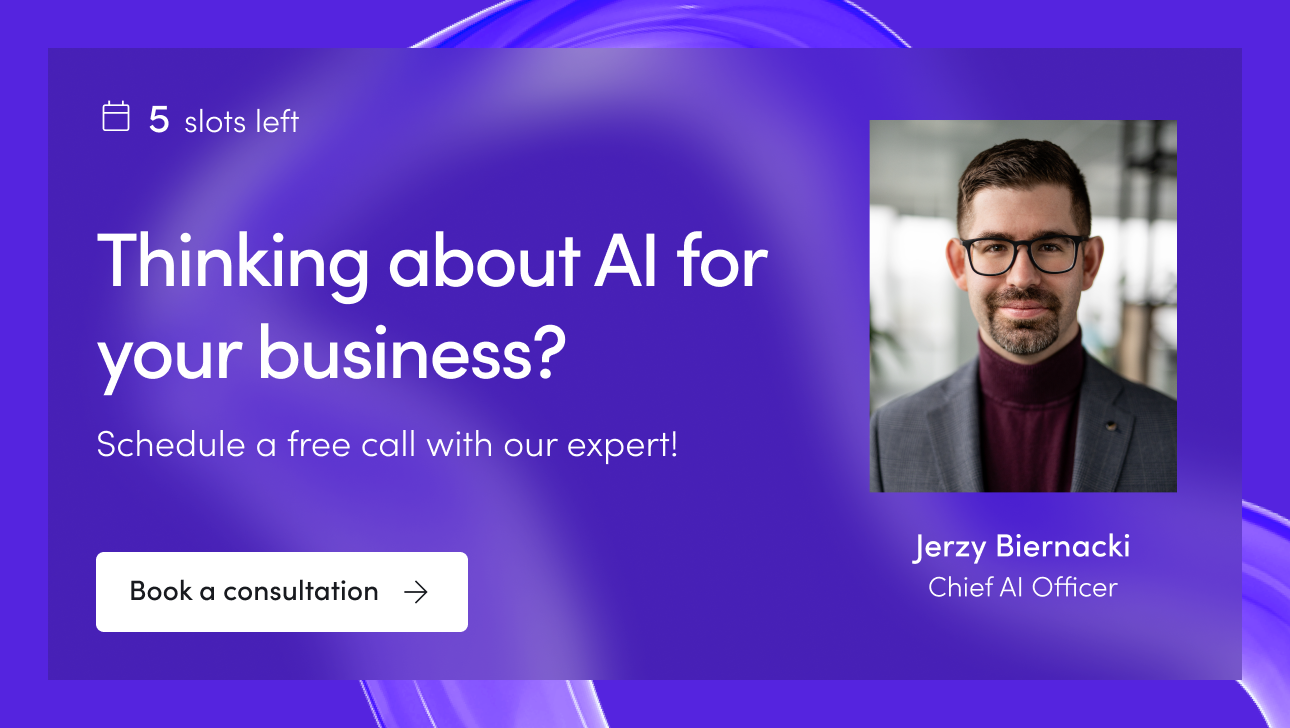As businesses look to gain an edge and individuals aim to boost productivity, AI virtual assistant software is transforming how tasks are managed. Unlike traditional automation tools, generative AI-powered virtual assistants provide a conversational, human-like experience that can tackle complex tasks and respond to subtle commands. Advanced AI technologies like natural language processing and machine learning enable these assistants to deliver personalized and effective user interactions.
With natural language understanding and contextual awareness, these assistants anticipate user needs, manage schedules, answer inquiries, and free up time for more strategic work. This real-time adaptability makes AI virtual assistants invaluable in settings from executive task prioritization to team support with scheduling, reminders, and information management. Custom AI technology enhances productivity and user interactions by streamlining operations and supporting automation across various applications.
Why AI Kickstarter for virtual assistants?
Miquido’s AI Kickstarter framework offers an ideal foundation for quickly developing AI assistants and intelligent virtual assistants. With its adaptable architecture and support for top language models like GPT-4 and Claude, AI Kickstarter allows businesses to create custom assistant solutions that align perfectly with their specific workflows and needs.
Key benefits include:
- Accelerated development: AI Kickstarter speeds up the development process, enabling faster deployment of AI assistants and intelligent virtual assistants that fit seamlessly into your existing systems.
- Flexible integration: Supporting major cloud platforms like AWS, Azure, and GCP, AI Kickstarter ensures scalability and robust data security.
- Cost-efficient design: AI Kickstarter allows businesses to use efficient, compact models when needed, keeping costs low without sacrificing performance.
With AI Kickstarter, companies can deploy high-performance, tailored AI assistants and intelligent virtual assistants that boost productivity, streamline workflows, and enhance overall efficiency.
Who it’s for?
AI personal assistant software is ideal for:
- Corporate executives and professionals who need help managing schedules, tasks, and communications,
- SMBs seeking a cost-effective solution to handle administrative tasks and customer inquiries,
- Customer support teams that want to automate responses to frequently asked questions,
- Sales and marketing teams looking for an efficient way to manage CRM data and automate follow-ups,
- Remote and hybrid teams needing support with virtual meeting coordination, task management, and document sharing,
- Users looking to enhance convenience through AI personal assistants like Alexa, Siri, Bixby, and Google Assistant, which offer voice recognition and personalization,
- Businesses aiming to improve customer support efficiency and brand image by deploying their own AI assistant for managing online operations and providing business guidance.

Challenges of traditional virtual assistant solutions
Traditional virtual assistant technology often fall short in several areas, such as:
- Limited understanding and customization: many traditional systems lack the machine learning capabilities needed to handle complex, nuanced requests, leading to misunderstandings and errors,
- Time-consuming manual tasks: without automation, users must handle repetitive tasks manually, reducing overall productivity,
- Fragmented functionality across tools: traditional assistants often require switching between multiple apps for tasks, communication, and scheduling, which slows down workflows,
- Lack of real-time adaptability: traditional systems aren’t equipped to handle last-minute changes, making them less reliable in fast-paced environments,
- High costs for dedicated human assistants: hiring full-time human assistants is often too costly, especially for small businesses or individuals needing a budget-friendly solution.
Benefits of the AI virtual assistant software
Artificial Intelligence virtual assistant software can effectively overcome these challenges, offering a highly adaptable, scalable, and intelligent solution that can respond to user needs quickly and accurately.
Key benefits include:
- Enhanced productivity: By automating time-consuming tasks like scheduling, reminders, and note-taking, the AI virtual assistant software frees users to focus on high-value work.
- Natural, conversational interactions: Using NLP, AI-powered virtual assistants can understand natural language requests, allowing users to communicate effortlessly without needing structured commands.
- Seamless multi-tasking: The AI virtual assistant software can perform multiple tasks simultaneously – whether managing calendars, setting reminders, or answering queries – providing a cohesive, all-in-one solution. These assistants also utilize voice commands to perform tasks through spoken instructions, enhancing user convenience.
- Cost-effective and scalable: The AI solution eliminates the need for additional personnel, making it an affordable and scalable choice for businesses and individuals.
- Real-time adaptability: The AI virtual assistant software dynamically adjusts to new information, automatically rescheduling tasks or changing priorities as needed, ensuring it remains relevant and responsive.
AI virtual assistant software workflow
- User input and command interpretation
- Natural Language Processing: The assistant receives user commands via text or as a voice assistant, leveraging NLP to accurately interpret the intent behind user queries and commands.
- Contextual understanding: Using contextual analysis, the assistant considers previous interactions, preferences, and priorities to provide relevant and accurate responses. For example, if a user frequently schedules calls after 2 PM, an intelligent virtual assistant adapts to suggest similar times when booking new appointments.
- Task execution
- Information retrieval and answer generation: Using Retrieval-Augmented Generation (RAG), the AI virtual assistant software can search its knowledge base or connected databases to provide precise answers to questions or retrieve specific information requested by the user.
- Multi-platform integration
- Cross-platform synchronization: The assistant integrates with calendars, email clients, CRM systems, project management tools, and other software to provide a unified experience. This means users can seamlessly access schedules, emails, and tasks from multiple devices and platforms.
- Omni-channel communication: The AI virtual assistant software can interact with users through various channels, including email, chat, voice, and mobile apps, ensuring users can access its services from their preferred communication tools.
- Continuous learning
- Feedback Loop: After completing tasks, the AI virtual assistant software can request feedback to learn from user preferences and improve its responses. It continuously refines its the solution based on user interactions.
Key benefits of AI virtual assistant software
- Streamlined task management: By automating routine tasks like scheduling and reminders, the AI virtual assistant software enables users to focus on critical responsibilities, improving overall productivity.
- Improved communication: With integrations across communication tools and platforms, the AI virtual assistant software ensures a cohesive experience, reducing the need to switch between apps or devices.
- Cost savings: AI technology reduces or eliminates the need for full-time administrative support, offering a scalable solution for businesses and professionals.
- Better time management: Real-time adaptability and prioritization features ensure that users stay on top of schedules, deadlines, and last-minute changes with ease.
- Enhanced User Experience: With natural language understanding, the AI virtual assistant software offers intuitive interactions that make it easy for users to access support and complete tasks efficiently.
- AI virtual assistant apps: These apps, including chatbots and voice assistants, provide cost-effectiveness and 24/7 availability, making them a valuable tool for both personal and professional use.
Solution features with natural language processing
- Natural Language Processing (NLP): Understands conversational language, enabling the AI virtual assistant software to respond accurately to user requests and commands.
- Contextual awareness: Remembers past interactions and preferences to provide personalized, relevant responses, making interactions feel intuitive and seamless.
- Real-time scheduling and reminder system: AI virtual assistant software is able to manage complex schedules, send reminders, and reschedule tasks as priorities change, ensuring effective time management.
- Knowledge base integration: AI virtual assistant software can leverage retrieval-augmented generation to access internal databases, CRMs, or connected knowledge bases, providing quick answers and data retrieval.
- Omni-channel access: AI virtual assistant software is available across multiple platforms, including chat interfaces, mobile, and desktop, so users can interact with the assistant wherever they work.
- Secure data handling: Built-in security protocols protect sensitive user information, ensuring compliance with data privacy standards.
- Integration with smart home devices: AI virtual assistant software can control various smart home gadgets like lights, thermostats, and security systems through voice commands or app integrations, enhancing user convenience and home automation.
AI virtual assistant case studies
Verseo, a marketing agency in Poland, partnered with Miquido to build a chatbot for internal knowledge sharing, boosting productivity for their 100 employees. Using Generative AI, Miquido created a Google Chat bot that provides instant access to FAQs and essential company data. Integrated seamlessly into Verseo’s communication tools, the chatbot reduced search time, handling thousands of conversations each month and significantly improving efficiency across internal operations and client projects.
Cost structure
The AI virtual assistant software developed with AI Kickstarter is a tailored solution with an initial setup and customization fee starting at $15,000. This covers integration with existing systems and deployment across chosen communication channels. Optional add-ons, such as advanced analytics, additional platform integrations, and role-specific customizations, are available for further tailoring to meet unique business needs.
ROI
Investing in AI virtual assistant software brings high returns by:
- Reducing administrative costs: automating routine tasks lowers reliance on human administrative support, cutting operational expenses
- Increasing productivity: enables employees to focus on strategic tasks, boosting overall output
- Improving responsiveness: faster responses and better time management lead to higher customer satisfaction and stronger client relationships
Streamline your workflow with an AI-powered virtual assistant that enhances productivity, improves time management, and provides a seamless user experience. This versatile assistant can adapt to your needs, handle routine tasks, and facilitate efficient, natural interactions – all while reducing costs. Additionally, leveraging Google Assistant can further enhance productivity and manage daily tasks through its voice-controlled search, smart home integration, and personalized recommendations, contributing to a high ROI.













